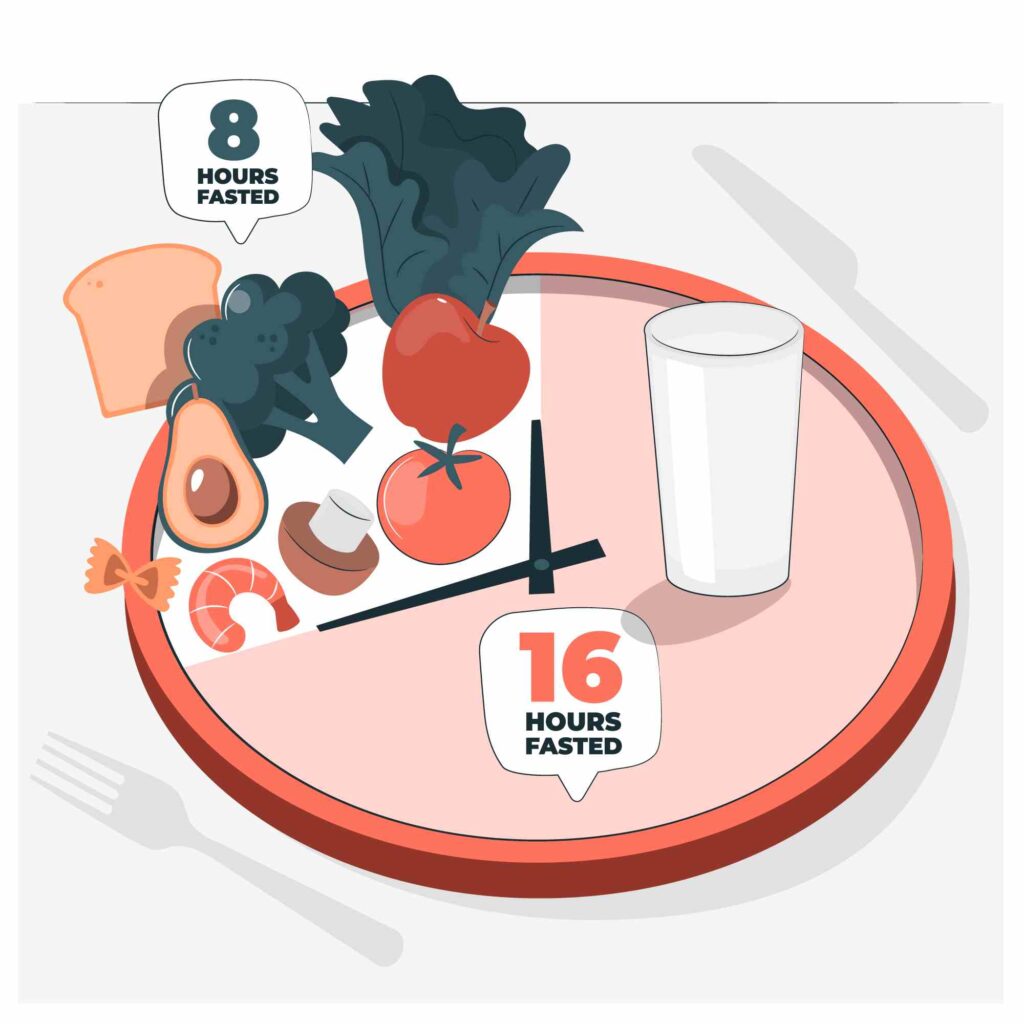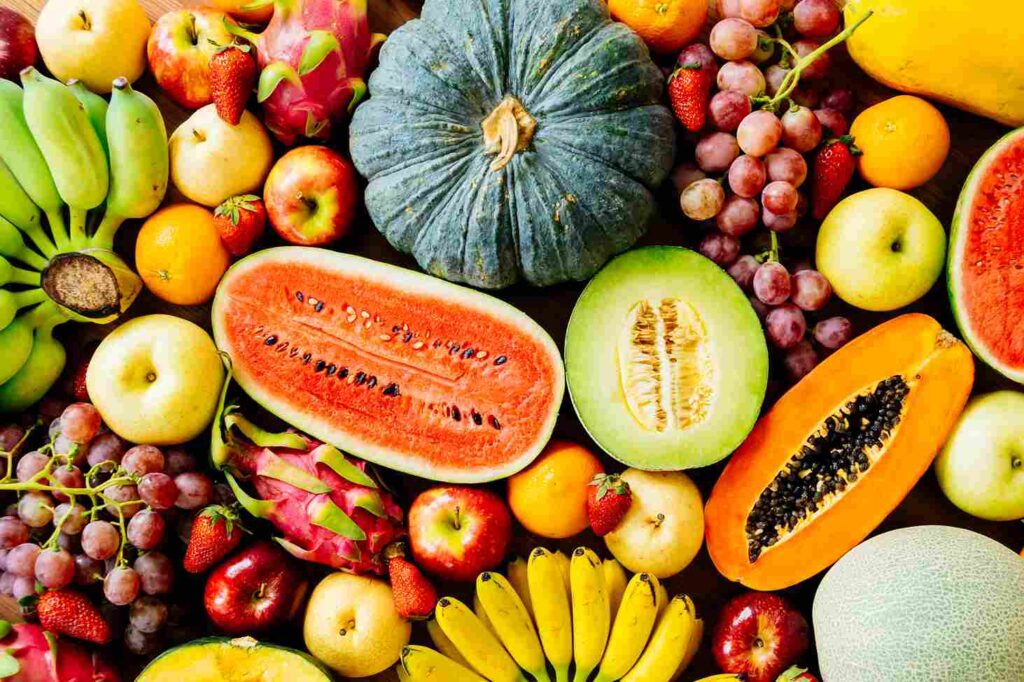Dr. Shubha. H.V

Intermittent fasting (IF) means intervals of restricted food intake for prolonged periods of time. There are different methods of IF with different consequences on health. IF has emerged as an alternative dietary intervention to calorie restriction. IF has analogous benefits in reducing the body weight, improving glucose homeostasis and lipid profiles, and also has added anti-inflammatory effects. Potential mechanisms of IF are reducing oxidative stress, collaborating with the circadian system and inducing ketogenesis. Let us know in detail some of the facts and tips related to IF……….
1. What are the different ways of practicing intermittent fasting?
The following are the various ways of doing IF:
A. 12 hours fasting per day: It involves a 12 hours fasting window every day (Example: 7.00 pm to 7.00 am fasting).

B. 16 hours fasting (Time restricted fasting/16:8 diet): This is the most popular method. It involves abstinence from eating for a 16 hour period and consuming food in the remaining 8 hours (Example: Finish dinner by 8.00 pm, skip breakfast the next day and don’t eat till noon). In this method, upto 16 hours of fasting can be done by males and 14 hours of fasting by females. Those who are not benefited from the 12 hours fasting method can choose this method.
The various advantages of this method are:
i. It is more effective than calorie restriction for weight loss and glycemic control in Type II diabetes mellitus.
ii. Reduces body weight, total cholesterol, triglycerides, glucose, interleukin-6 and TNF-alpha in prediabetics.
iii. This method is feasible for older adults.
iv. It improves sleep.
C. Fasting two days a week (Periodic fasting/ 5:2 diet): In this method, one can consume optimal quantity of healthy food for 5 days and on two non-consecutive days, the person can consume around 500-700 calories of 25 % of regular daily caloric intake.
The advantages of this method are:
i. Safe in Type II diabetes mellitus.
ii. Corrects hypertension.
iii. Helps to decrease weight and HbA1C levels
iv. Decreases visceral fat, insulin resistance, liver steatosis and inflammatory markers.
D. 24-hour fast per week (Eat-Stop-Eat diet): In this method, fasting is done for 1 or 2 days strictly per week. During the fasting days, no food is consumed for 24 hours. However, the person on fasting can consume water, tea or other calorie-free fluids. These people can resume back to routine eating habits on the non-fasting days. This method reduces the overall calorie intake but does not limit the particular foods that the individual consumes.
E. Alternate day fasting method: Fasting is done on every alternate day. The calorie intake should be only 25% of the normal daily calorie consumption on fasting days. On other days, the person can consume the routine diet. This method is good for weight loss without any increased risk of developing eating disorders. However, it is an extreme form of IF and may not be acceptable for beginners or those with certain medical conditions. It is also difficult to maintain this type of fasting for a longer term.
F. Warrior diet: It is a relatively extreme form of IF. Only a few servings of raw fruits and vegetables are consumed during the 20 hours fasting window period. This is usually followed by a large meal at night. The eating window is only 4 hours and the diet includes plenty of vegetables, proteins, healthy fats and carbohydrates. This method is good only for people who have already tried other methods of IF.
2. Which is the best option for beginners?
12 hours fasting a day is a good option for beginners as it has various advantages such as:
i. Fasting window is less.
ii. Fasting happens mostly during sleep.
iii. Same number of calories can be consumed every day.
3. What is the IF menu?
The IF menu includes a mixture of vegetables, fruits, whole grains, nuts and seeds, proteins (meat and seafood).


- Vegetables: Carrots, broccoli, cauliflower, beets, onions, garlic, lettuce, bell peppers, eggplant, potatoes, spinach, sweet potatoes, kale, green beans, cucumber.
- Fruits: Apples, apricots, blueberries, blackberries, raspberries, cherries, bananas, grapes, peaches, pears, pineapples, plums, kiwi, oranges, watermelon, honeydew melon, lime and lemon.

- Whole grains: Rice, oats, corn
- Nuts and seeds: Almonds, cashews, pistachios, walnuts, pine nuts, chia seeds, flax seeds, pumpkin seeds, sunflower seeds, sesame seeds, hemp seeds.
- Protein:
- Meats: Chicken, pork, beef, eggs, turkey
- Seafoods: Shrimp, tuna, salmon, crab, sardines, scallops, tilapia
- Fluids: Water, herbal tea, moderate amounts of black tea or coffee.
4. What are the possible advantages of IF on health?
- IF improves cardiovascular health by reducing obesity, hypertension, dyslipidemia and diabetes.
- Weight reduction helps in lowering obesity-related diseases such as sleep apnea, diabetes and cancer.
- IF is very effective for reducing inflammation and conditions associated with inflammation such as Alzheimer’s disease, arthritis, asthma, multiple sclerosis and stroke.
- Enhancement of chemotherapy effects.
- Tumor suppression
- Mood disorders improvement
- Chronic pain improvement
5. What are the potential risks and side effects of IF on health?

IF may cause weakness, hunger, dehydration, headaches, difficulty in concentrating, low blood pressure, fatigue, irritability, nausea, hypoglycemia, constipation, insomnia or alteration in sleep quality, undernutrition, loss of fat free mass, hyperphagia (post fasting).
6. Who should not practice IF?
- Elderly frail people
- Underweight people
- Those under 18 years of age
- Pregnant and breastfeeding women
- Type I diabetes people who are on insulin
- Those with eating disorders
- Those with kidney, liver, heart diseases
- Those with immunodeficiency
7. What are the tips to stick to an IF plan?
The following tips help people to stick to an IF plan:
- Resting and relaxing: Strenuous activities should be avoided on fasting days. Light exercise like yoga may be beneficial.
- Stay hydrated: Make sure to drink plenty of water or other calorie-free drinks. This helps to ensure that the body gets enough electrolytes.
- Avoid thinking about food: On the fasting days, avoid thinking about food and plan plenty of distractions such as going out for a movie or keeping yourself busy with office work or house chores.
- Choose nutrient-rich foods after the fasting period: Eat foods rich in vitamins, minerals, fiber and other nutrients to keep the blood sugar levels steady and prevent nutritional deficiencies.
- Increase the taste without the calories: Season the meals liberally so that the foods are low in calories yet full of flavor. This helps to reduce feelings of hunger.
Author’s biography
Dr. Shubha. H.V is the Associate professor,Department of pathology,Sapthagiri Institute of Medical Sciences and Research Centre, Bangalore.

